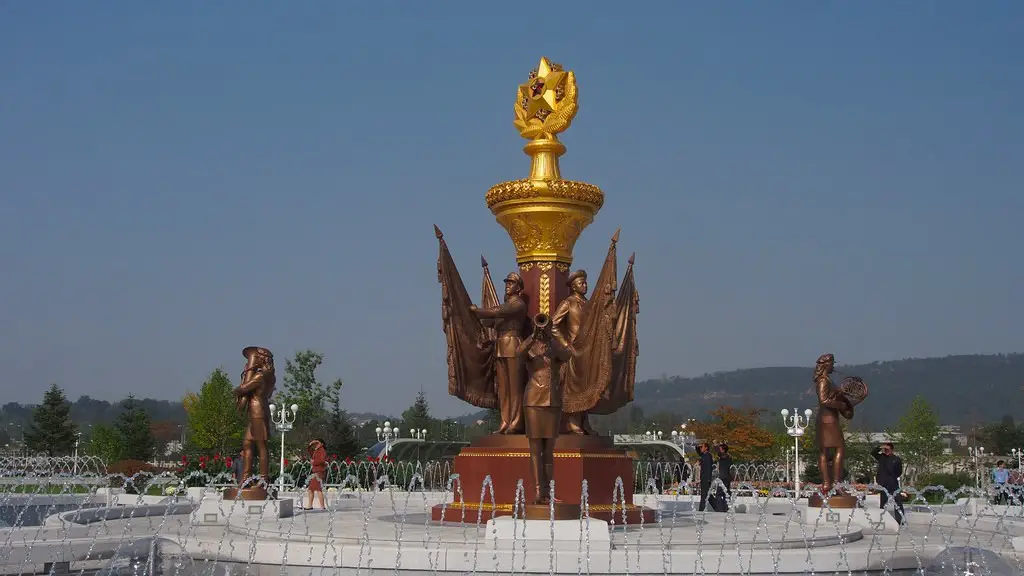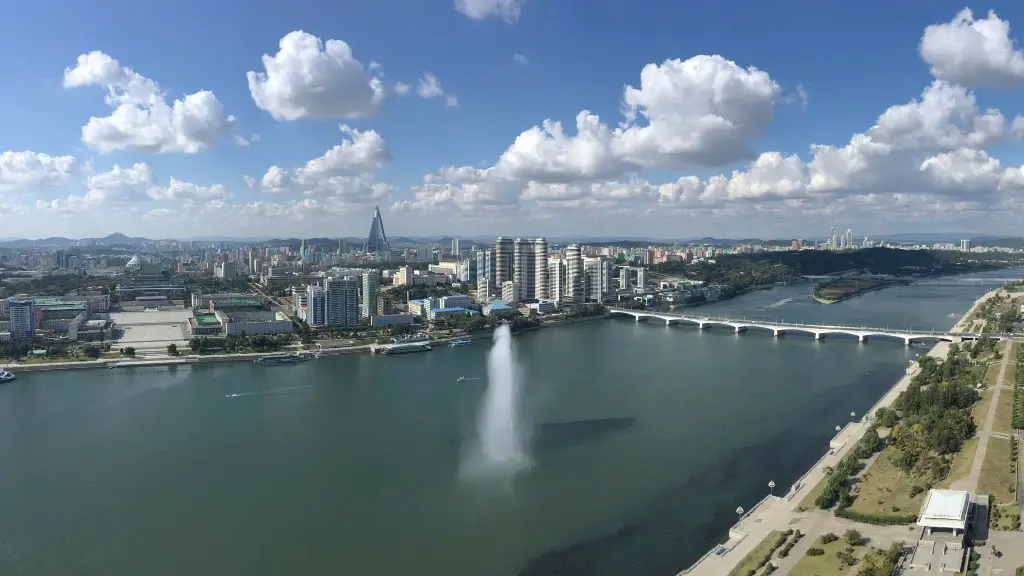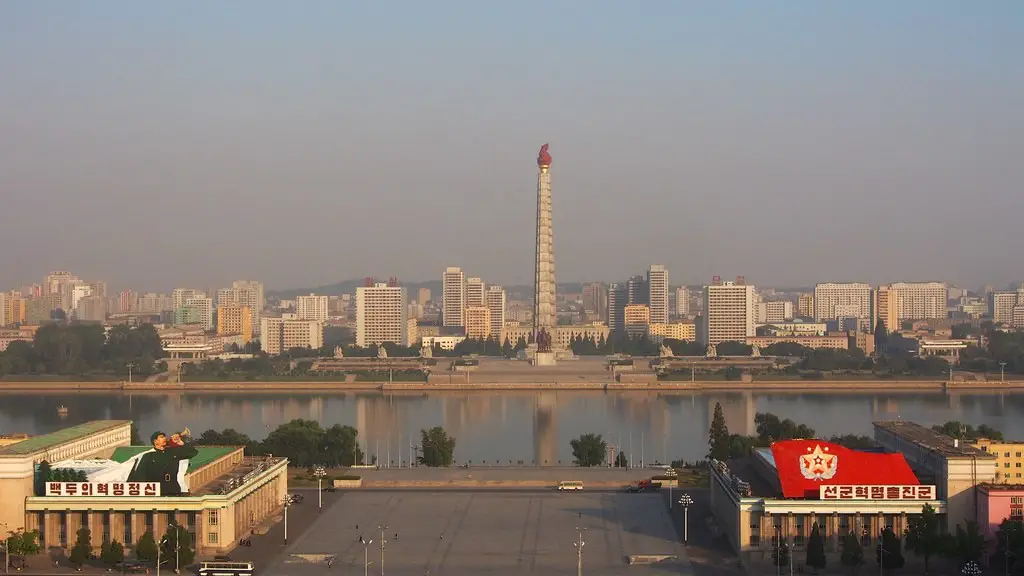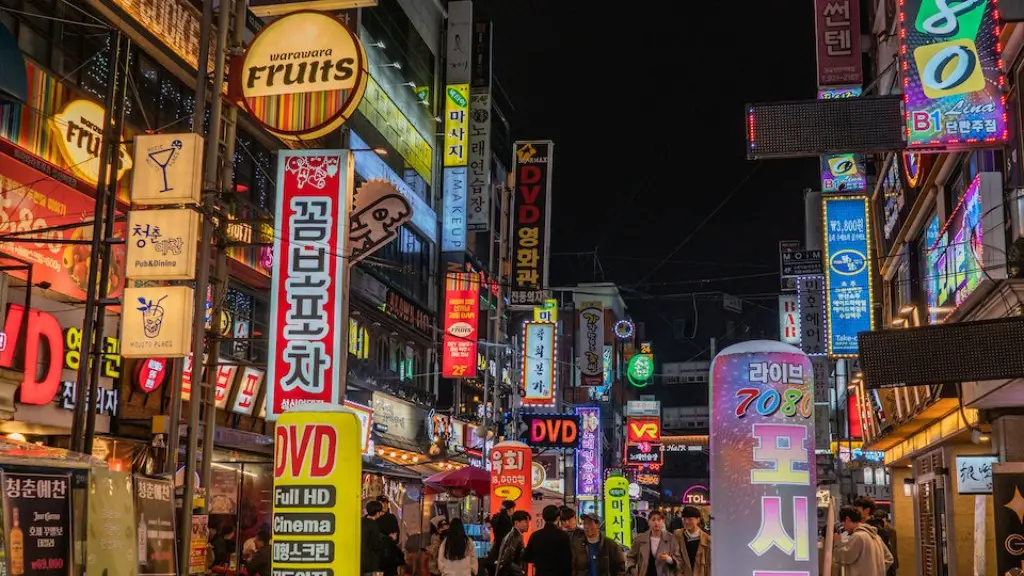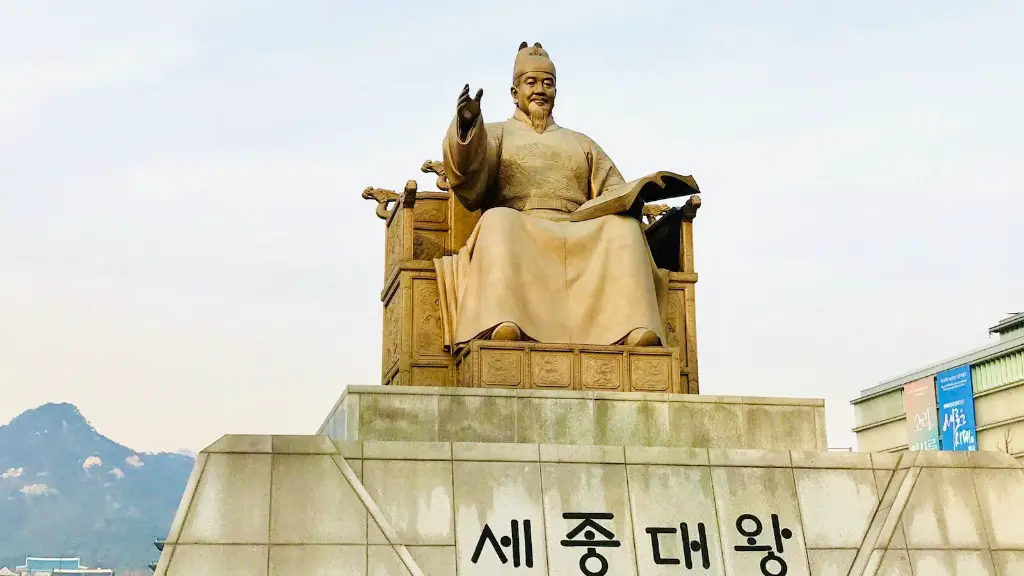Background To North Korea
North Korea is one of the few remaining officially-ran socialist states in the world today. Founded in 1948, the nation is led by the authoritarian Kim family, with its current leader, Kim Jong-Un, in office since 2012. Control of the nation is held centrally by the government in Pyongyang with power wielded down to local levels by a complex network of ‘loyalty networks’ over the country’s approximately 24 million population. Historically, the nation’s isolationism has meant the existence of a largely self-sufficient, domestically-based economy, with limited external trade and little access to international media.
North Korea’s Nuclear Weapons Program
North Korea has become a major international security concern due to its nuclear weapons program. The nation has been working on the proliferation of nuclear weapons since the late 1980s. In 2006 North Korea conducted its first nuclear weapon test, becoming the world’s ninth nation to acquire the capability. This event has sparked international anxiety and concern, as the country is threatening to launch nuclear warheads and missiles at South Korea, the United States and Japan, claiming itself a major power.
Regional Impact Of North Korea’s Program
The proliferation of nuclear weapons by North Korea has had profound implications for international relations, as it has raised tensions in the region and beyond, ensuring a heightened state of alert as international actors seek to contain the state. It has also changed the ‘rules of the game’ in the region, with its acquisition of such armaments forcing the United States, Japan, South Korea and other international actors to re-evaluate their view of the state and its place in the international community.
The International Response To North Korea
In response to North Korea’s nuclear program, the United Nations Security Council has imposed multiple rounds of sanctions intended to deny Pyongyang of the resources it uses to pursue its weapons program. The sanctions, targeted mostly at North Korea’s leader Kim Jong Un, have substantially weakened the nation’s economy, with the sanctions impacting the nation’s access to credit and investment.
The Impact Of North Korea’s Program Internally
Internally, North Korea’s nuclear program has had a significant impact on the nation’s economy and population. The isolation of the nation has meant its economy remains largely reliant on the production of weapons of mass destruction, with the sanctions further diminishing its economic prospects. This has had a serious impact on the nation’s vulnerable and impoverished population, with increasing levels of malnutrition, food insecurity and hardship observed in the nation’s population.
The Threat Of North Korea
North Korea poses an ever-growing global threat, with its nuclear program enabling it to acquire increasingly powerful weapons of mass destruction. The potential for regional and international insecurity intensifies with each subsquent nuclear test conducted, as well as the subsequent sanctions and countermeasures implemented by global powers. North Korea’s unpredictable and dictatorial leader, Kim Jong-Un, is seen to be driving these developments, making the region ever more volatile and the international community ever more concerned.
The Potential Of North Korea Alliances
Despite the international sanctions, North Korea continues to have a close relationship with certain countries, such as China and Russia, who are seen to act as ‘ally’, shielding the nation from the full brunt of international condemnation. These ties also provide Kim Jong-Un and his government with access to additional military hardware, technology and expertise to further pursue their nuclear capabilities.
The Consequences Of A North Korean Attack
The prospect of a North Korean nuclear attack is of considerable concern for numerous nations, with the consequences to the region and beyond seen to be catastrophic. Such an attack could potentially result in the loss of millions of lives, the displacement of millions more, and the potential loss of major cities, regions and states within the effected area.
The International Strategies To Contain North Korea
The global community has attempted to contain North Korea’s nuclear ambitions through a variety of strategies. These have most notably included United Nations-led sanctions, as well as an increasingly low level of diplomatic contact between Pyongyang and other global powers. Other efforts to deescalate the conflict include the United States-led ‘dual-track’ policy of sanctions and engagement and the four-party peace talks between North and South Korea, China, Japan and the United States.
China And North Korea’s Relationship
Though often strained due to Beijing’s cautious approach to international issues, China and North Korea continue to maintain a strong and cordial relationship. China serves as North Korea’s principal source of aid and support, with Beijing understood to have immense influence over Pyongyang’s political, military and economic policies. China has also been instrumental in facilitating negotiations and diplomatic efforts to deescalate tensions between North Korea and its regional neighbours.
The US Perspective On North Korea
The United States has a long and complex relationship with North Korea. In 2017, Donald Trump and North Korea’s leader Kim Jong-Un met for the first ever US-North Korea Summit. Though the ensuing negotiations between the two leaders did little to resolve the situation, it did serve as an indication of a potential new thaw in relations between the two states, now further complicated by the US-China trade war.
The Effect Of International Sanctions On North Korea
Over the course of its nuclear weapons program, North Korea has been subject to multiple rounds of United Nations-imposed sanctions. These sanctions have weakened the nation’s access to credit, investment and energy resources, with their effects having been especially harsh on the nation’s vulnerable population, with large numbers of people suffering starvation, malnutrition and economic hardship. Despite the sanctions, North Korea appears to have been able to increase its military capabilities, with many experts believing the sanctions to have acted as a catalyst to Kim Jong-Un’s increasingly belligerent presence.
The Impact Of North Korea On The Region
The nuclear ambitions of North Korea have had a considerable effect on the nations of the region. Regional powers such as South Korea, China, Japan and the United States have been forced to adjust their own military and nuclear strategies to counteract Pyongyang’s development of weapons of mass destruction. Additionally, regional security and tensions in the region have intensified due to the ever increasing regional capabilities of North Korea, which has led to a growing sense of insecurity for many of the nations of the region.
The North Korea-South Korea Relationship
The relationship between North Korea and South Korea has been fraught with tension and animosity over many decades. Despite numerous efforts to bring the two nations together, such as the conclusion of the Korean Armistice Agreement in 1953, denuclearization talks between the two countries have failed to fully address their differences. In addition to this, the nuclear ambitions of North Korea have grown to represent a direct threat to South Korea, one which could have catastrophic consequences to the region and beyond.
The Role Of The International Community
As tensions rise in the region, the international community is attempting to contain North Korea’s nuclear ambitions through diplomatic engagement, sanctions and other security measures. However, many experts believe that without a coordinated and targeted response from the international community, the threat of a North Korean attack will continue to remain.
The Possibility Of A North Korean Crisis
Despite its unpredictable and often volatile nature, North Korea has been relatively cautious when it comes to openly challenging the global powers. That said, some experts fear that the unpredictable nature of the Kim Jong-Un-led government could lead to a rapid escalation in tensions with unforeseen consequences. In this event, the international community would need to respond with decisive action, in order to mitigate any potential threats.
The Role Of North Korean Diaspora
The North Korean diaspora has become an increasingly important factor in the region. North Korean-born individuals, mainly in China and South Korea, are becoming increasingly vocal in calling for change in the nation and greater engagement from the outside world. These individuals provide an invaluable source of information and insight into the nation, thereby enabling international actors to better understand North Korea and its people.
